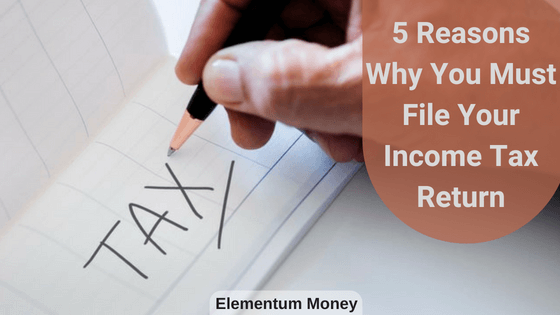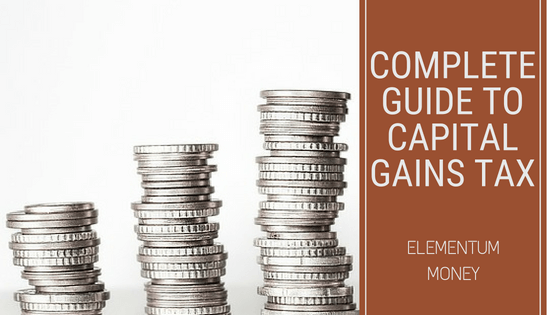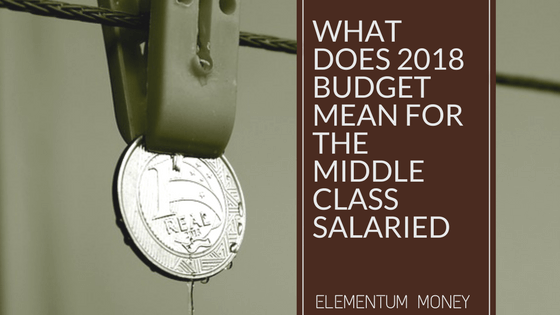
July is not a month I really look forward to (apart from my mum’s birthday). For me, July is synonymous with 4 words – File Income Tax Return. It’s an annual duel of words that me and my father have with each other. Starting May, once a fortnight he will feign a casual tone and ask me if my Form 16 is in. By July, the question changes and so does the tempo – when are you filing your taxes? X days remain.
For the first few years, I have ensured that I make a trip home to Delhi in July just so that I can get some hand holding and help with filing my Income Tax returns. Today, I can proudly say that most of my 7-8 years of working life I have filed my Income Tax returns myself, depending on a CA for one or two of the complicated years with 2 employers.
When I was working with my previous bank, my boss was someone who I thought was a financially savvy person having been with the same bank for 15 years! Turns out, working with a bank does not equate to Personal Finance savviness. He calmly told me that he does not file Income Tax returns every year and once in about 3 years works just as well. Which, is not true, of course.
Then there was this colleague in my current organization who was super excited about planning her first international trip to Spain. When she started preparing for her visa application, she realized that Income Tax Return for the past 3 years was a mandatory document, which she had never filed in her 4-year work history, despite her father having a CA for his financial requirements. She finally took his help and filed returns for 4 years together. While it all summed up to zero, she realized some years she was eligible for a refund whereas, for some additional tax, she paid a higher amount thanks to the accumulated interest of late payment.
Despite the fact that it is now quite easy to file your Income Tax Return, people still find excuses and especially a lot of salaried folks seem to believe that – hey, my company cuts all the Income Tax they need to and I really don’t need to file any returns. Well, there are quite a few reasons why filing Income Tax Returns before July 31st, become important.
Why you must file your Income Tax Returns
1. Fine on not filing Income Tax Return
Starting April 2018, you will be asked to cough up Rs. 5,000 as a fine if you do not file your Income Tax returns by July 31st for the previous financial year. However, this fine increases to Rs. 10,000 if you do not file the Income Tax Return even by December 31st, 2018. So, not filing income tax returns comes with monetary repercussions.
2. Can be due for Income Tax refund
Enough company salary accounting teams get their calculations wrong and you could actually be due for an Income Tax refund. Unless you do your calculations at the end of the year and file your Income Tax returns, you will never know and neither can you claim.
3. Salary is often not the only source of income
While companies deduct tax at source while paying out salaries, for most of us salary is not the only source of income. Banks do deduct TDS on the bank account and FD interest but that is done at a rate of 10{76b947d7ef5b3424fa3b69da76ad2c33c34408872c6cc7893e56cc055d3cd886} whereas most of us would be in the 20{76b947d7ef5b3424fa3b69da76ad2c33c34408872c6cc7893e56cc055d3cd886} or the 30{76b947d7ef5b3424fa3b69da76ad2c33c34408872c6cc7893e56cc055d3cd886} bracket. Also, if you invest in equities or even debt (I sure hope you do), then any gains also need to be accounted for which your employer cannot do for you.
4. It is the only way to offset losses from a previous financial year
One of the provisions in the Income Tax rules is the fact that net short-term losses can be used to offset some of the long-term gains over a period of 8 assessment years. This can be done only if you have been diligently filing your Income Tax returns. Check out this Cleartax post for a better idea of this provision.
5. Income Tax Return Certificate is a required document in some processes
A lot of official processes require you to furnish records of your Income Tax Return certificates. As mentioned above, visa application to many countries like Schengen block and the US is just one of those instances. Even for loan applications, most banks ask for IT return certificates as it is a record of your earning capability in the last few years, how it has grown as well as whether your tax record is clean or not.
How can you file your Income Tax return
Today, filing Income Tax return digitally is quite easy and there are other players in the market who are trying to ease it further.
Below are 3 possible routes you could take:
1. Income Tax return site
This is the official website of the Income Tax department. I have always filed my returns here. Off late I have really seen the site evolve. Initially, it required you to download an excel sheet and do all the calculations for taxable income etc. Now, you can file your Income Tax return on the website itself and most of the calculations are done automatically.
2. Clear Tax or H & R Block
These are 2 of the big players that I know in the market, through which you can file taxes. While Cleartax is a free Income Tax return filing option, H&R Block has plans starting from Rs. 499. On both websites, you can upload your Form 16 and the user interface and journey are more intuitive than the Income Tax portal itself.
3. Local C.A.
However, if the idea of Income Tax returns still scares you (I know it would have scared me as well, if not for my dad’s persuasion tactics), most local C.A.’s will charge you a bare minimum amount to file returns on your behalf. They will even guide you by asking you for all documents and sending you the Income Tax return certificate once the process is done.
Whatever method you choose, ensure you do file your Income Tax return before 31st July. In case, you are planning to do it yourself, below is a handy list of documents that you can refer to, to file your Tax Return.
Documents required:
- PAN Number
- Aadhaar Number
- Form 16A and 16B
- Form 26 AS
- Investment proofs
- Bank Statements
- FD Statements
- Home Loan statement
- Health Insurance Premium receipt
- Investment gains
- Form 16C (in case of landlords with a monthly rent of more than Rs. 50,000)
With about 23 more days left when you can file your Income Tax return, a friendly tip: Don’t wait till the last minute especially if you are planning to use the official portal as it tends to become slower and sometimes even crashes.
On my part, I have my date with that portal scheduled for next weekend!
How do you file your Income Tax returns? Do you use any tricks that can help other readers? Let me know in the comments section below.





Leave a Reply